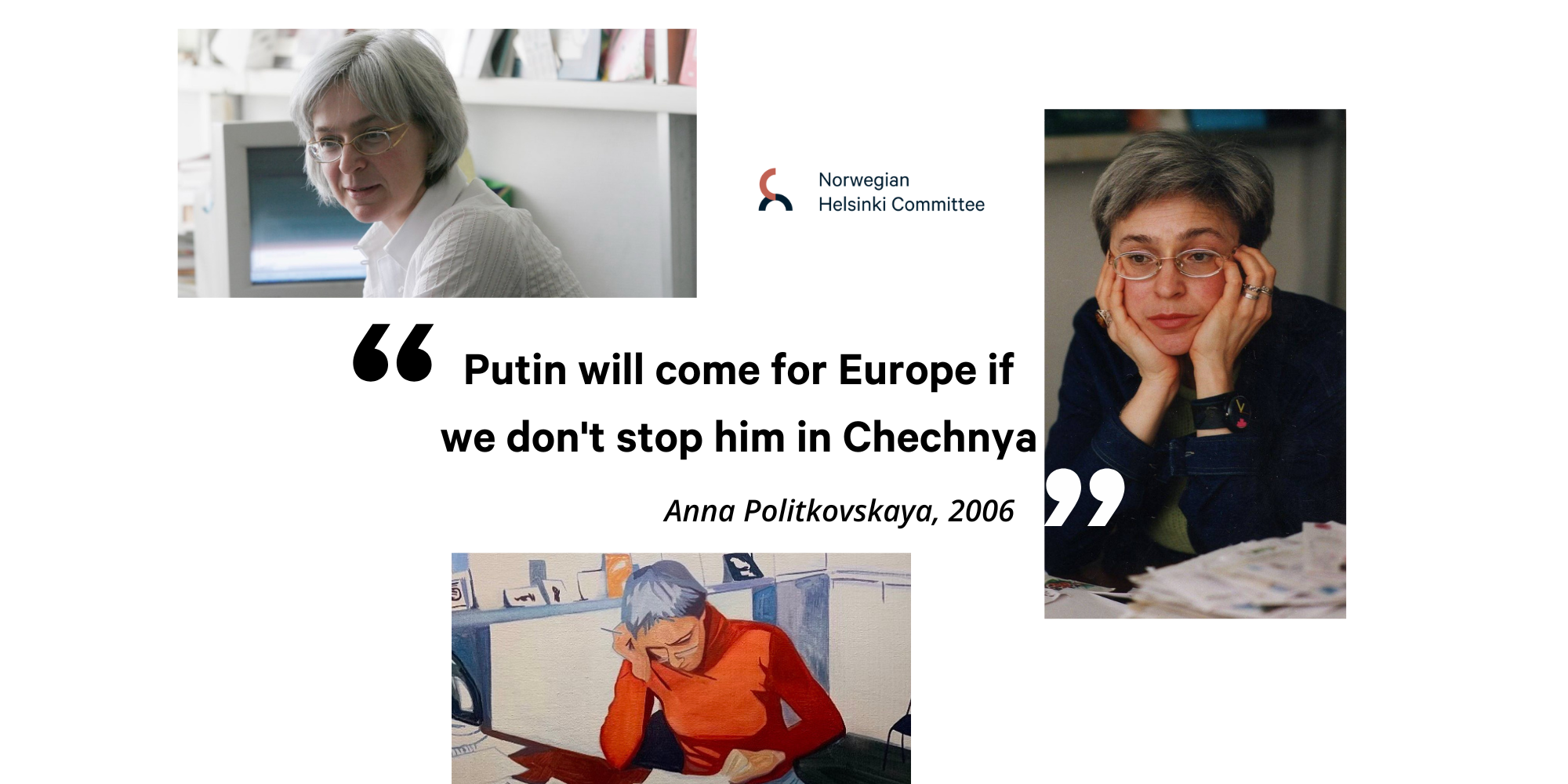In December 1994, 30 years ago, federal military forces attacked the republic of Chechnya, which formally was part of the Russian Federation. In 2006, one month before she was killed, Anna Politkovskaya yet again warned: “If we don’t stop Putin now, he will come for Europe.” Although there have been armed conflicts, deportations and insurgencies in Chechnya since Russia started its conquest of the Caucasus in the 18th Century, the ensuing internal armed conflict became known as the first Chechen war. Grave crimes characterised it and disregard for the civilian population by the federal forces. Tens of thousands of non-combatants were killed, villages and towns erased. Yet, the pro-independence forces were able to resist. The war ended with an agreement that opened a way for peaceful coexistence and possible independence.
The second Chechen war started in 1999. It ended the peace process and helped Vladimir Putin consolidate power in the Russian Federation. It was equally vicious, but the federal forces defeated large-scale military resistance this time. Since then, the Kremlin has controlled the Republic through a local proxy regime based on the Kadyrov family. This feudal-style arrangement has resulted in the establishment of Chechnya as a permanent human rights disaster zone. Under a surface of “peace”, journalists like Anna Politkovskaya and human rights defenders like Natalia Estemirova have been killed.
From eyewitnesses, we will hear about the legacy of the wars and the work done to achieve justice for the victims. Russia was found guilty of serious human rights violations in hundreds of cases by the European Court of Human Rights, but it has not changed its behaviour. Russian officers and units responsible for atrocities in Chechnya are committing similar crimes in Ukraine today. The Kadyrov regime continues to terrorise the local population. There is no answer to the fundamental problem in the relations between Russia and Chechnya, namely that a substantial part of the population in Chechnya wanted independence and may still want it.
Every year, the NHC organises events in memory of the Novaya Gazeta journalist Anna Politkovskaya, who was murdered on 7 October 2006. There is no armed conflict in Chechnya any longer, but the consequences of war in terms of victimisation, disappearances and lack of justice live on. This year, we examine the legacy of the Chechen wars and ask what they mean for the future of Chechnya.
Programme
17:00 Welcome, intro (Berit Lindeman, NHC Secretary General)
17:05 – 18:00 The wars and their legacy
Video: images from two wars
Experiencing and documenting the wars: Presentation by Usam Baysayev (NHC’s Natalia Estemirova Documentation Centre)
The legacy of wars: Oyub Titiev (Memorial) in conversation with Lene Wetteland, NHC Documentation and Accountability Hub)
Short Q&A
18:00 – 19:00 Chechnya under Kadyrov: Is there a way out of the reign of terror?
Human rights and politics in today’s Chechnya: Aage Borchgrevink (NHC), in conversation with Tatiana Britskaia (Novaya Gazeta), Olga Sadovskaya (Crew Against Torture), Grigory Shvedov, (Caucasian Knot)
Short Q&A
19:00 –19:30 Light refreshments
The event is supported by Fritt Ord
